detail profile sacha guitry
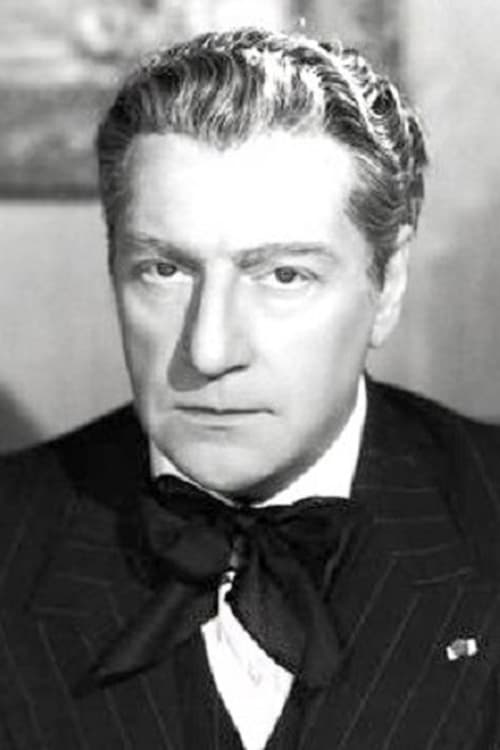
Sacha Guitry
Alexandre Guitry
atau dikenal sebagai
Riwayat Hidup
Alexandre-Pierre Georges Guitry (21 February 1885 – 24 July 1957), known as Sacha Guitry, was a French stage actor, film actor, director, screenwriter, and playwright of the boulevard theatre.
He was the son of a leading French actor, Lucien Guitry, and followed his father into the theatrical profession.
He became known for his stage performances, particularly in boulevardier roles.
He was also a prolific playwright, writing 115 plays throughout his career.
He was married five times, always to rising actresses whose careers he furthered.
Probably his best-known wife was Yvonne Printemps to whom he was married between 1919 and 1932.
Guitry's plays range from historical dramas to contemporary light comedies.
Some have musical scores, by composers including André Messager and Reynaldo Hahn.
When silent films became popular Guitry avoided them, finding the lack of spoken dialogue fatal to dramatic impact.
From the 1930s to the end of his life he enthusiastically embraced the cinema, making as many as five films in a single year.
The later years of Guitry's career were overshadowed by accusations of collaborating with the occupying Germans after the capitulation of France in the Second World War.
The charges were dismissed, but Guitry, a strongly patriotic man, was disillusioned by the vilification he received from some of his compatriots.
By the time of his death, his popular esteem had been restored to the extent that 12,000 people filed past his coffin before his burial in Paris.
Guitry was born at No 12 Nevsky Prospect, Saint Petersburg, Russia, the third son of the French actors Lucien Guitry and his wife Marie-Louise-Renée née Delmas de Pont-Jest (1858–1902).
The couple had eloped, in the face of family disapproval, and were married at St Martin in the Fields, London, in 1882.
They then moved to the then Russian capital, where Lucien ran the French theatre company, the Théâtre Michel, from 1882 to 1891.
The marriage was brief.
Guitry senior was a persistent adulterer, and his wife instituted divorce proceedings in 1888.
Two of their sons died in infancy (one in 1883 and the other in 1887); the other surviving son, Jean (1884–1920) became an actor and journalist.
The family's Russian nurse habitually shortened Alexandre-Pierre's name to the Russian diminutive "Sacha", by which he was known all his life.
The young Sacha made his stage debut in his father's company at the age of five.
Lucien Guitry, considered the most distinguished actor in France since Coquelin, was immensely successful, both critically and commercially.
When he returned to Paris he lived in a flat in a prestigious spot, overlooking the Place Vendôme and the Rue de la Paix.
The young Sacha lived there, and for his schooling he was first sent to the well-known Lycée Janson de Sailly in the fashionable Sixteenth arrondissement.
He did not stay long there, and went to a succession of other schools, both secular and religious, before abandoning formal education at the age of sixteen.
.
.
.
Source: Article "Sacha Guitry" from Wikipedia in English, licensed under CC-BY-SA 3.
0.
Info Pribadi
Peran Yang Di Mainkan Sacha Guitry
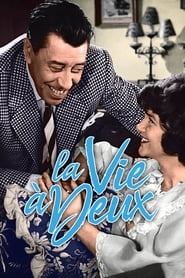 The writer Pierre Carot became rich...
The writer Pierre Carot became rich...Life Together 1958
The writer Pierre Carot became rich and famous with his book "Life as a Couple", which was based on the loving relationships of four couples. Now he's setting up his will and wants to leave his wealth to the couples among the four, which are still as deeply in love - if any: else, his companions get the money. He sends them out to visit the couples and test their love.
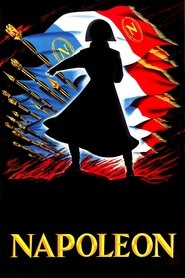 The film follows the life of...
The film follows the life of...Napoleon 1955
The film follows the life of Napoleon from his early life in Corsica to his death at Saint Helena. The film is notable for its use of location shooting for numerous scenes, especially at the French estates of Malmaison and Fontainebleau, the Palace of Versailles, and sites of Napoleonic battles including Austerlitz and Waterloo.
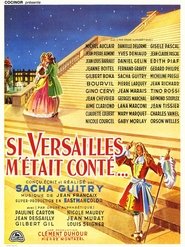 Witty narration follows the history of...
Witty narration follows the history of...Royal Affairs in Versailles 1954
Witty narration follows the history of Versailles Palace; founded by Louis XIII, enlarged by autocratic Louis XIV, whose personal affairs and amours, and those of his two successors, are followed in more detail to the start of the Revolution, after which the story is brought rapidly up to date. A huge cast plays mainly historical persons who appear briefly.
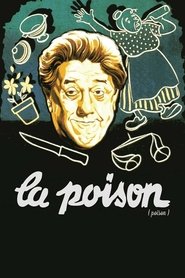 Paul Braconnier and his wife Blandine...
Paul Braconnier and his wife Blandine...Poison 1951
Paul Braconnier and his wife Blandine only have one thing in mind: to find a way to kill each other without risk. After listening to a radio show, Paul decides to go to Paris to meet a famous lawyer in the acquittal of the murderers. He tells the lawyer that he killed his wife. The lawyer asks Paul to reconstruct the circumstances of the drama. Without knowing it, he explains, in spite of himself, the way for Paul to murder his wife by putting the odds on his side to avoid death penalty or even be released...
 Is it because his father was...
Is it because his father was...Adhémar or the Toy of Destiny 1951
Is it because his father was a groom that Adhémar Pomme has a long horse head and a horse- toothed smile? Maybe but the fact is that his head has invariably caused laughter whatever the circumstances, which is the tragedy of his life. After having worked as an undertaker, a theater prompter, a casino bouncer, and so on, and failing at each job, he applies out of desperation to an institution where those rejected for physical reasons can hide and live together. But Adhémar immediately starts... laughing at them and gets kicked out as a result! In the end though, he finds his way as a circus artist.
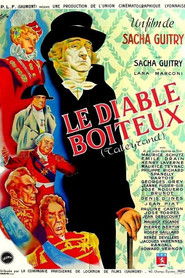 The film is a 125minute blackandwhite...
The film is a 125minute blackandwhite...The Devil Who Limped 1948
The film is a 125-minute, black-and-white biography of French priest and diplomat Charles Maurice de Talleyrand-Périgord (1754–1838), who served for 50 years under five different French regimes: the Absolute Monarchy, the Revolution, the Consulate, the Empire, and the Constitutional Monarchy. Its title comes from one of the main historical nicknames for Talleyrand, that he shares with demon king Asmodeus and English poet Lord Byron.
 Nicole Vdrs chronicle of Paris from 1900...
Nicole Vdrs chronicle of Paris from 1900...Paris 1900 1948
Nicole Védrès' chronicle of Paris from 1900 to 1914 is brought to life through the use of original material, all authentic, secured from more then 700 films belonging to public and private collections. A few of the celebrities of the time shown are Enrico Caruso, Sarah Bernhardt, and Maurice Chevalier.
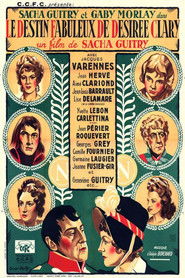 Julie and Dsire Clary are courted...
Julie and Dsire Clary are courted...Mlle. Desiree 1941
Julie and Désirée Clary are courted by the brothers Joseph and Napoleon Bonaparte. Joseph marries Julie and Napoleon is affianced to Désirée. When Napoleon breaks the engagement and marries Joséphine de Beauharnais, Désirée becomes involved with General Bernadotte.
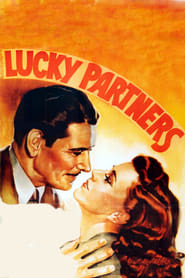 Two strangers split a sweepstake prize...
Two strangers split a sweepstake prize...Lucky Partners 1940
Two strangers split a sweepstake prize to go on a fake honeymoon with predictable results.
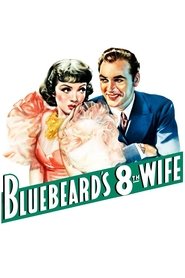 American multimillionaire Michael Brandon marries his...
American multimillionaire Michael Brandon marries his...Bluebeard's Eighth Wife 1938
American multi-millionaire Michael Brandon marries his eighth wife, Nicole, the daughter of a broke French Marquis. But she doesn't want to be only a number in the line of his ex-wives and undertakes her own strategy to tame him.
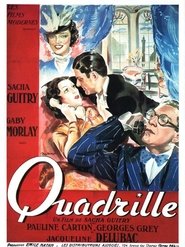 The battle of the sexes as...
The battle of the sexes as...Quadrille 1938
The battle of the sexes as drawing room social satire. Philippe, a middle-aged newspaper editor, has lived for six years with Paulette, a successful stage actress. He tells her friend Claudine, a realistic and enterprising reporter, that he's thinking of proposing. Into the mix steps Carl Erickson, a charming Hollywood matinée idol in Paris briefly. He meets Paulette, sees her act (his box seat compliments of Philippe), and sets out to seduce her. The next two days bring talk, tears, separation, despair, surprises, and, perhaps, reconciliation as characters speak "exactly half the truth." It's a quadrille of changing partners.
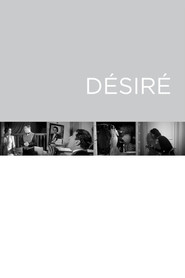 Sacha Guitry exchanges his usual top...
Sacha Guitry exchanges his usual top...Désiré 1937
Sacha Guitry exchanges his usual top hat for a uniform in Désiré, playing a cavalier valet embroiled in an awkward flirtation with his new employer (played by the actor-director's real-life wife, Jacqueline Delubac), who is involved with a stuffy politician. A carefree class farce filled with memorable supporting characters, Désiré blurs the distinction between upstairs and downstairs.
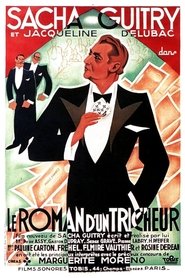 Life story of a charming scoundrel...
Life story of a charming scoundrel...The Story of a Cheat 1936
Life story of a charming scoundrel, with little dialogue other than the star/director's witty narration. As a boy, only he survives a family tragedy when he's deprived of supper (poisonous mushrooms!) for stealing...concluding that dishonesty pays. Through years of dabbling in crime and amusing adventures, two women appear and reappear in his life, a dazzling blonde jewel thief and a stunning brunette gambler. Finally, he meets the mysterious Charbonnier who had saved his life in World War I, leading to the surprising next phase in his career...
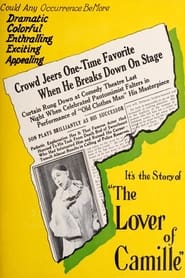 The Lover of Camille was a 1924...
The Lover of Camille was a 1924...The Lover of Camille 1924
The Lover of Camille was a 1924 American silent romantic drama film directed by Harry Beaumont, and starring Monte Blue. The film was based on the French novel Deburau by Sacha Guitry, which was also adapted into a Broadway play by Harley Granville-Barker.
 In the 1980 French countryside farmer Jojo...
In the 1980 French countryside farmer Jojo...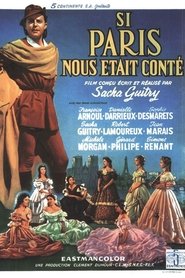 Historical film directed and written by...
Historical film directed and written by...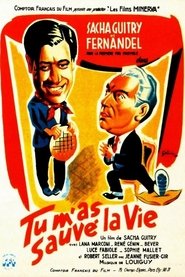 A wealthy baron without offspring who...
A wealthy baron without offspring who...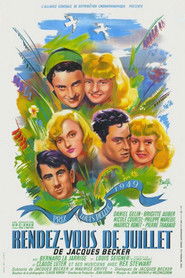 Hopes and love and ambitions and...
Hopes and love and ambitions and...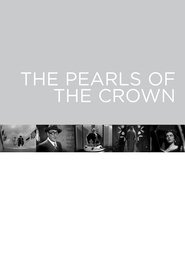 The story of the seven pearls...
The story of the seven pearls...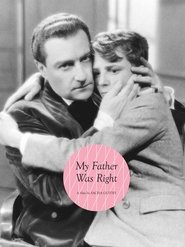 After being left for another man...
After being left for another man...